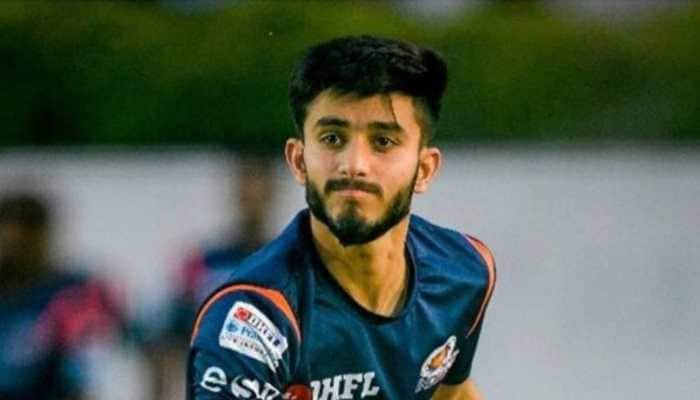UNSC 'helpless' on enforcing its own sanctions against terrorism: India
In a scathing criticism of the Security Council's role in fighting terrorism, India has said that the UN's primary body for international security was helpless in making countries enforce its own sanctions and resolutions against terrorists.
Trending Photos
)
United Nations: In a scathing criticism of the Security Council's role in fighting terrorism, India has said that the UN's primary body for international security was helpless in making countries enforce its own sanctions and resolutions against terrorists.
Participating in a General Assembly debate on the annual report on the Security Council, he said that even when it has applied sanctions or made decisions on terrorism it "appears helpless" in making the member states enforce them.
In June, China blocked India's demand for taking action under Security Council's anti-terrorism resolutions against Pakistan for setting free Zaki-ur-Rehman Lakhvi, the Lashkar-e-Toiba mastermind of the 2008 Mumbai attack.
Moreover, the annual report on the Council "does not reveal anything about the way in which the Council's sanctions regimes against terrorism function, which by itself is a significant omission, hidden from our scrutiny in this Assembly," he said.
India had asked the the "Council to investigate, prosecute and penalize terrorist acts, especially those directed against UN peacekeepers,a¿ Mukerji said. "Regrettably, the Council has not acted on this issue." He added that it makes "for dismal reading regarding the ineffectiveness of the Council."
In his wide-ranging criticism of the functioning of the Council, Mukerji said it was disregarding the views of UN member states while wasting "valuable time and resources of the General Assembly."
All the resolutions and presidential statements last year were adopted before non-Council members were permitted to speak, "making a travesty of such open participation."
Mukerji said, "This attitude of the Council is highly objectionable. We expect the Council to take into account the views expressed by us in this annual exercise."
"The primary organ of the United Nations responsible for maintaining international peace and security has allowed the world to slide further down the road to violence and conflict," Mukerji said catalouging Council's failures.
As a result, more than 60 million people have been victimised and "the Council seems unable to comprehend the nature of the socio-economic challenges faced by developing countries due to the breakdown of international peace and security," he added.
The glaring failures of peacekeeping operations mandated by the Council can be seen in Africa, where none of them have been successfully ended, Mukerji said. "The Council is using peacekeeping as an open-ended mechanism, and not as a means to bring about a sustainable peace."
An important reason for this is the under-representation of Africa in the Council, which has no permanent members from the contient, he said. Making a case for expanding the permanent membership of the Council, he added, that merely increasing the short-term membership or creating a category of long-term rotational seats will not work.
Another shortcoming of the Council, Mukerji said, was in using peaceful negotiations to end conflicts. "The impetus to use political negotiations to resolve crises is now occurring outside the Security Council and not in the Council," he said, citing the cases of Syria, South Sudan and Ukraine.
Stay informed on all the latest news, real-time breaking news updates, and follow all the important headlines in india news and world News on Zee News.
Advertisement
Live Tv
Advertisement







)
)
)
)
)
)
)
)
)
)
